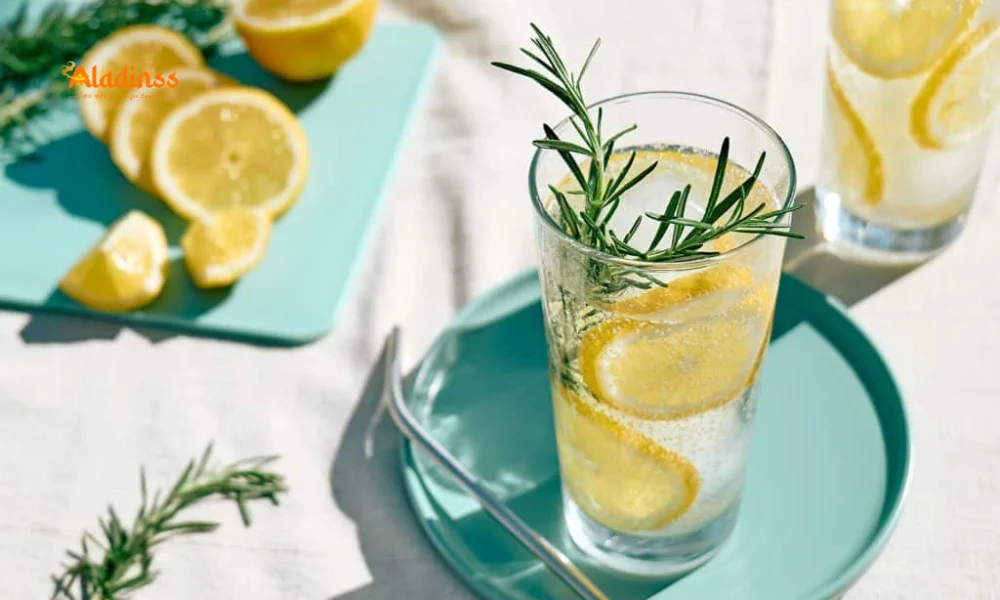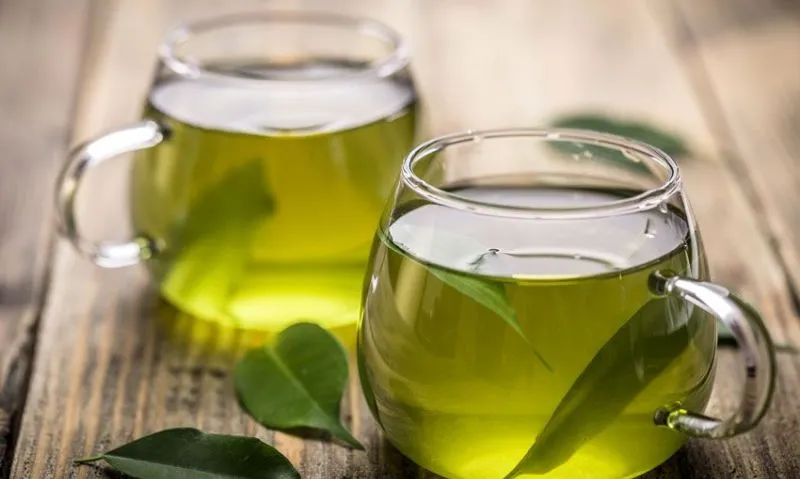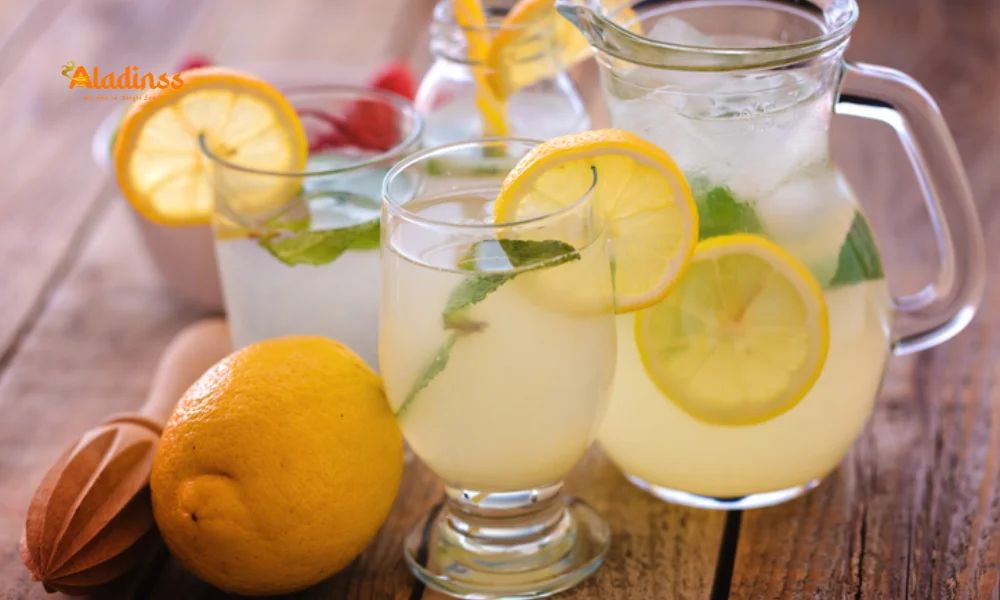Liver-Cleansing Drinks: From Green Tea to Lemon Juice in 2025

Liver-Cleansing Drinks: From Green Tea to Lemon Juice in 2025
As liver diseases surge due to modern lifestyle changes and poor dietary habits, health experts are turning to natural remedies to support liver health. On August 27, 2025, Dr. Saurabh Sethi, a California-based gastroenterologist trained at Harvard and Stanford, shared a definitive list of drinks that promote liver detoxification and overall wellness. From plain water to beetroot juice, these beverages harness the power of antioxidants, hydration, and nutrients to cleanse the liver naturally. This breaking health update, trending on platforms like X, highlights the best and worst drinks for liver health, offering practical advice for those seeking to protect this vital organ. Discover how green tea, lemon juice, and other drinks can transform your liver health in this comprehensive guide.

The Rising Threat of Liver Diseases
Liver diseases, including fatty liver disease, hepatitis, and cirrhosis, have become increasingly prevalent, driven by factors like high-sugar diets, alcohol consumption, and sedentary lifestyles. According to a 2025 World Health Organization report, non-alcoholic fatty liver disease (NAFLD) affects nearly 30% of adults globally, with India reporting a 25% prevalence in urban areas. The liver, responsible for detoxifying the body, metabolizing nutrients, and regulating hormones, is critical to overall health. Dr. Sethi emphasizes, “Protecting the liver through diet and hydration is more effective than relying on expensive detox products that often lack scientific backing.”
Natural drinks, rooted in traditional practices and supported by modern research, offer a safe and effective way to support liver function. Social media platforms like X are abuzz with discussions on liver-cleansing remedies, with hashtags like #LiverHealth and #DetoxDrinks trending as users share tips and recipes. Below, we explore Dr. Sethi’s ranked list of drinks that promote liver health, from water to beetroot juice, and highlight those to avoid for optimal wellness.
Top Drinks for Liver Health
Dr. Sethi’s research, informed by his training at Harvard and Stanford, ranks the following drinks for their liver-cleansing properties, emphasizing hydration, antioxidants, and nutrient density. Here’s a detailed look at the best options:
1. Plain Water: The Ultimate Detoxifier
Topping Dr. Sethi’s list is plain water, the cornerstone of liver health. “Hydration is the most critical factor for liver detoxification,” he explains. Water flushes toxins from the liver, supports metabolic processes, and prevents dehydration-related stress on the organ. A 2024 *Journal of Hepatology* study found that adequate hydration reduces liver fat accumulation by 15% in NAFLD patients. Drinking 8–10 glasses daily, preferably filtered or purified, ensures optimal liver function and overall wellness.
2. Beetroot Juice: The Liver’s Best Friend
Beetroot juice takes the top spot among nutrient-rich drinks due to its high content of betalains, antioxidants that reduce liver inflammation and flush toxins. A 2023 *Nutrients* study showed that daily consumption of beetroot juice lowered liver enzyme levels by 20% in patients with fatty liver disease. Dr. Sethi recommends drinking 150–200 ml of fresh, unsweetened beetroot juice daily, ideally in the morning, to maximize detoxification benefits.
3. Green Tea: Antioxidant Powerhouse
Green tea ranks second for its rich catechin content, particularly epigallocatechin gallate (EGCG), which supports liver function by reducing oxidative stress. A 2024 *Journal of Clinical Nutrition* study found that green tea consumption improved liver enzyme levels by 18% in individuals with NAFLD. Dr. Sethi advises drinking 1–2 cups of unsweetened green tea daily, avoiding excessive intake to prevent potential liver strain from high caffeine levels.
4. Lemon Juice: Digestive and Detox Aid
Lemon juice, often consumed as warm lemon water in the morning, is a popular choice for liver health. Its high vitamin C content boosts antioxidant defenses, while its alkaline effect supports detoxification. A 2023 *Nutrition Reviews* study found that lemon juice enhances bile production, aiding fat metabolism and reducing liver strain. Dr. Sethi suggests squeezing half a lemon into 250 ml of warm water daily to improve digestion and liver function, but warns against overconsumption to protect tooth enamel.
5. Unsweetened Vegetable Juice: Nutrient-Rich Option
Unsweetened vegetable juices, such as those made from kale, spinach, or carrots, rank fourth due to their nutrient density. While rich in vitamins and minerals, they lack fiber, which limits their liver-cleansing potential compared to whole vegetables. A 2024 *Food Science & Nutrition* study noted that vegetable juices provide antioxidants that reduce liver inflammation, but Dr. Sethi recommends combining them with fiber-rich foods for optimal benefits.
6. Smoothies and Fresh Juices: Limited Impact
Smoothies and fresh fruit juices, while perceived as healthy, rank lowest for liver health. Dr. Sethi explains, “They often contain high sugar levels and lack fiber, which can strain the liver.” A 2023 *Journal of Hepatology* study found that excessive fructose from fruit juices can contribute to liver fat accumulation. For smoothies, blending whole fruits and vegetables with minimal added sugars is a better option, but their impact on liver detoxification remains limited compared to water or beetroot juice.
Drinks to Avoid for Liver Health
Not all drinks are liver-friendly, and some can actively harm this vital organ. Dr. Sethi warns against the following:
Store-Bought Fruit Juices
Store-bought fruit juices, often marketed as healthy, are among the worst for liver health. High in added sugars and low in fiber, they can spike blood sugar and contribute to fatty liver disease. A 2024 *American Journal of Clinical Nutrition* study found that regular consumption of sugary juices increased liver fat by 10% in participants. Dr. Sethi advises opting for fresh, unsweetened juices or whole fruits to avoid these risks.
Excessive Tea Consumption
While moderate tea consumption, particularly green tea, benefits the liver, excessive intake of certain teas (e.g., black tea or herbal blends with high caffeine) can strain the liver. A 2023 *Liver International* study linked excessive tea consumption to elevated liver enzyme levels in some individuals. Dr. Sethi recommends limiting tea to 1–2 cups daily and avoiding sweetened or processed varieties.
How to Incorporate Liver-Cleansing Drinks
To maximize the benefits of these liver-cleansing drinks, integrate them into your daily routine strategically. Start the day with a glass of warm lemon water to stimulate digestion and detoxification. Mid-morning, sip 150 ml of fresh beetroot juice or a cup of green tea to boost antioxidant intake. Throughout the day, prioritize plain water, aiming for 2–3 liters to support liver function. For vegetable juices, blend kale or spinach with minimal fruit to keep sugar levels low. Dr. Sethi advises, “Consistency is key, but avoid overconsumption of any single drink to maintain balance.”
For those with liver conditions like NAFLD or hepatitis, consulting a gastroenterologist or nutritionist is essential before making dietary changes. Blood tests can assess liver enzyme levels, guiding personalized recommendations. A 2025 Indian Health Survey found that 35% of urban Indians have elevated liver enzymes, highlighting the need for accessible remedies like these drinks to combat liver disease.
Public Response and Social Media Trends
The focus on liver-cleansing drinks has sparked widespread interest on social media, with X users sharing recipes and experiences. One user posted, “Beetroot juice has been a game-changer for my energy levels!” Another wrote, “Switched from sugary juices to lemon water, and my digestion is so much better!” The hashtag #LiverDetox is trending, reflecting growing awareness of liver health. Health influencers are promoting recipes like beetroot-green tea smoothies, amplifying the message of natural detoxification.
The rise in liver diseases, driven by processed diets and stress, has fueled demand for natural solutions. A 2025 *Global Wellness Institute* report notes that 70% of Indians are seeking natural remedies to support organ health, with affordable options like lemon water and green tea leading the way. As awareness grows, these liver-cleansing drinks are becoming a staple in health-conscious households, offering a science-backed approach to wellness.
Comment / Reply From
No comments yet. Be the first to comment!






